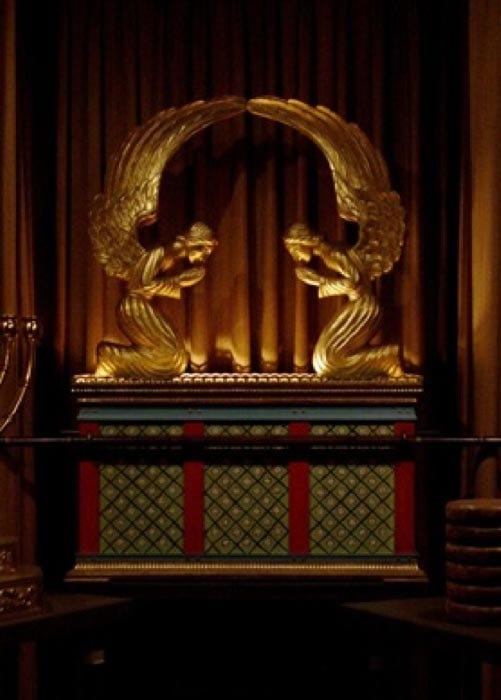Was the Ark of the Covenant an Instrument of Anachronistic Technological Knowledge?
Somewhere in the Negev Desert, Mount Sinai, at dawn on a day of the 13th century BC: "Moses, go and speak to the children of Israel! Tell them that they must make a wooden Ark of Acacia, its length of two and a half cubits and its width of a cubit and a half “, spoke Yahweh to Moses and Moses instructed Bezalel and his people in the plain of Refidim: "This Ark made of the same precious wood of Setim, but inside and outside dressed in fine gold...A solid gold carving made of a crown rose, and ran around all its lip. Serravala a flat lid all in gold, on which two Cherubim of the same metal against each other on two ends of the length were placed."

Besides the description of the Ark of the Covenant in the Bible, a volume dating to 1780, The Holy History of the Old Testament, provides interesting material for research on instruments, devices and cultural objects belonging to the Jewish tradition that, seen from a more modern perspective, would seem to suggest the existence of 'anachronistic technical knowledge'. For the description of the Ark can't help but remind one of a large capacity electric capacitor - made up of two conductors (the gold foils inside and outside) separated by a dielectric (the Setim wood, i.e. Acacia wood) - which can therefore be assimilated to be capable of accumulating large, and sometimes dangerous, quantities of static electricity. A dielectric material is a substance that is a poor conductor of electricity, but an efficient supporter of electrostatic fields. If the flow of current between opposite electric charge poles is kept to a minimum while the electrostatic lines of flux are not impeded or interrupted, an electrostatic field can store energy.
In fact: "Uzzah now stretched out his hand towards the Ark of the true God and grabbed it...then Yahweh's wrath flashed against Uzzah and the true God knocked him down there for the irreverent act so that he died there near the Ark..." (Samuel II VI,7). The unsuspecting Uzzah had, in fact, involuntarily tried to support the Ark, that was about to topple from the cart in which David, with the help of the unfortunate Uzzah and Ahio, sons of Abinadab, was transporting it to the house of Obed-Edom. The fact that he had touched the Ark, probably at a point of high potential compared to the ground, had caused his body to be wracked by an electric shock. At least that would seem to be the case from the Old Testament descriptions.


